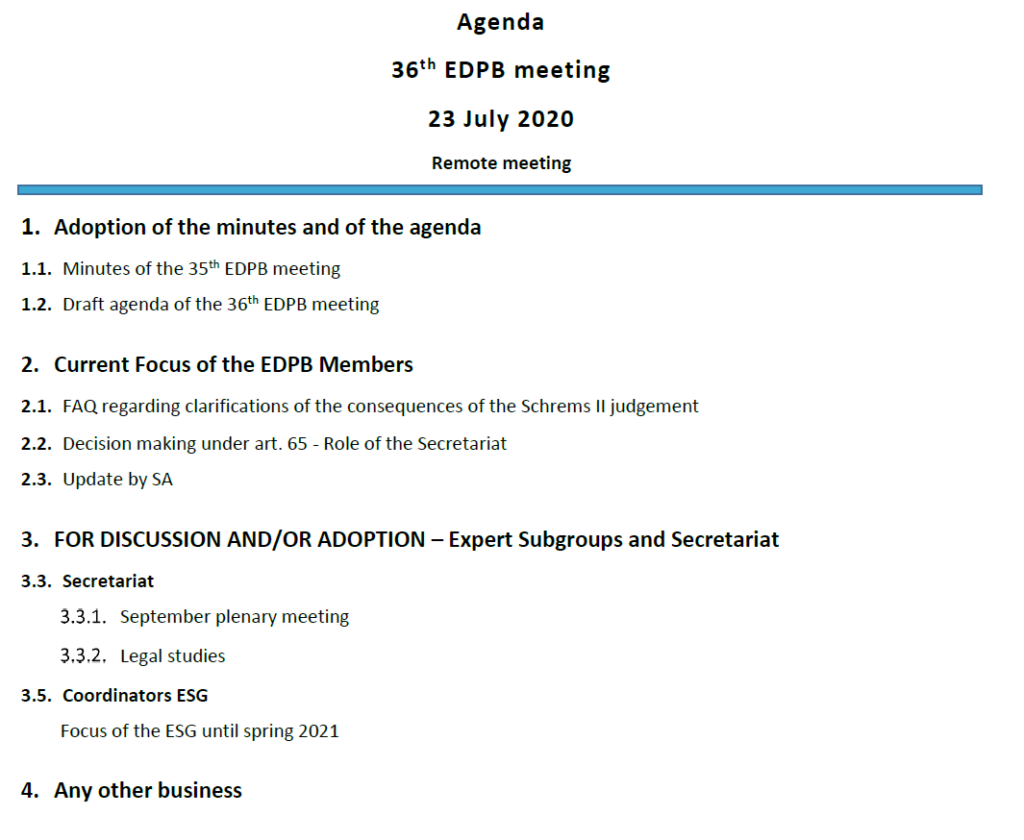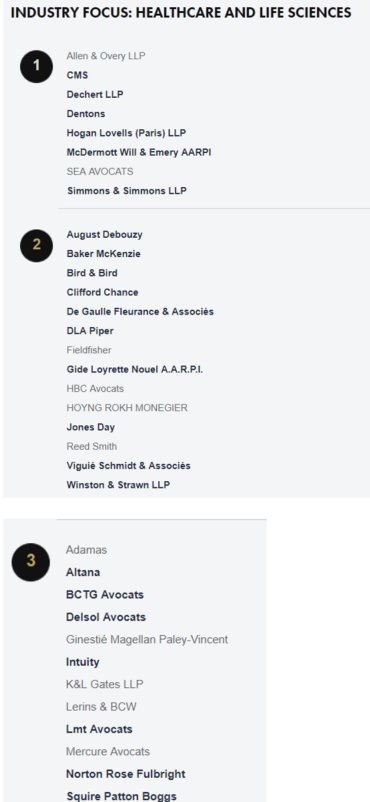K&L Gates ranked “Highly Recommended” with Claude-Etienne Armingaud.
Source: Leaders League
(more…)The European Data Protection Board (EDPB) published two sets of new guidelines on 2 September 2020, on the concepts of controller and processor (Guidelines 07/2020, the Guidelines) and on the targeting of social media users (Guidelines 08/2020 – see our Alert here). The earlier aims to replace the previous opinion by EDPB’s predecessor, the WP29, on these concepts by clarifying the main concepts of “controller”, “joint-controllers” and “processor” and by specifying the consequences attached to these notions.
(more…)

On the morning of 16 July 2020, in a significant decision of the Court of Justice of the European Union (CJEU), the Privacy Shield was held to be invalid.
What is the Privacy Shield
The Privacy Shield was an agreement negotiated in 2016 between the United States Department of Commerce, the European Commission and the Swiss Administration to provide a mechanism for companies to transfer personal data from the European Union and Switzerland to the United States. The Privacy Shield was designed to enable companies to transfer personal data across the Atlantic in accordance with EU data protection law that pre-dated the GDPR.
(more…)K&L Gates LLP‘s healthcare and life sciences offering covers corporate, IT, intellectual property and regulatory mandates within the sector under the leadership of Jean-Patrice Labautière. He recently assisted Axonics with its €35m fundraising from Gilde Healthcare and represented a bidder in the sale of a business division by a leading global healthcare company. While Nicola Di Giovanni focuses on corporate and private equity mandates, Claude-Etienne Armingaud collaborated with Labautière to advise a heavyweight healthcare player on the implementation of a startup acceleration programme for the development of new technology.


On January 21, 2019, the French Data Protection Authority (Commission Nationale de l’Information et des Libertés, or “CNIL”) published its first sanction rendered under the General Data Protection Regulation (“GDPR”).
Barely eight months after GDPR entered into force, and the subsequent group actions that were introduced in France, the CNIL followed in their footsteps its other European counterparts. However, while Portugal in July drew first against a hospital with a EUR 400,000 fines, the Austrian and German follow-ups, respectively for EUR 4,800 and 20,000 underwhelmed in contrast with the EUR 20 million, or 4% of the global turnover of a company (which ever the greatest) maximum fines allowed under GDPR.
Today’s CNIL decision nevertheless set the possible path for upcoming application of GDPR, by striking a EUR 50 million fine against Google LLC.
This sanction followed the group complaints formed by Maximilian Schrems’s association “None Of Your Business” (“NOYB” – already behind the cancellation of the Safe Harbor in 2015 and currently litigating against the Standard Contractual Clauses in Ireland) and La Quadrature du Net (“LQDN”), which received a mandate from 10,000 individuals to refer the matter to the CNIL.
The CNIL grounded its decision on the lack of transparency and inadequate information of the individuals in order to deem the consent regarding the ads personalization invalid.
On the one hand, the CNIL highlighted that the information of the data subjects was diluted in a myriad of documents while applying to a plurality of services at once (e.g. Google search, You Tube, Google Home, Google Maps, Playstore…). This did not allow the user to gain a “just perception of the nature and the volume of data collected.”
On the other hand, the consent-gathering mechanism was deemed inadequate to obtain the “specific” and “unambiguous” consent required for such data processing operations. The CNIL notably criticized the blanket acceptance of “the processing of [users’] information as described above and further explained in the Privacy Policy”, which, according to the Regulator, does not allow the users to opt-it to the each particular processing operation at stake without additional steps for the users to reach the required information.
This decision, in addition to be the first rendered by the CNIL under GDPR, will also in all likelihood be the last under the current Secretary General, Isabelle Falque-Pierrotin, who will be replaced on February 1st, after heading the CNIL since 2011.
On 17 July 2018, the European Union (the “EU”) and Japan reached an agreement to recognize each other’s data protections systems as “equivalent”, and each commits to complete internal procedures by fall 2018 (the “Data Agreement”). Once adopted, this will allow businesses to transfer personal data from the European Economic Area 1)The EEA brings together the EU Member States and the three EFTA (European Free Trade Association) States (Norway, Liechtenstein and Iceland) into a … Continue reading(the “EEA”) to Japan and vice versa without being required to provide further additional safeguards for each transfer.
The Data Agreement concludes the two-year-long dialogue regarding mutual recognition of personal data protection regimes between the two parties, and it was issued along with the EU-Japan Economic Partnership Agreement, a long-awaited EU-Japan free trade deal. Prior to the final Data Agreement, in December 2017, the governments issued a joint statement to resolve issues essentially within the existing personal data protection framework to enable free data transfer between the two parties.
(more…)
References
| ↑1 | The EEA brings together the EU Member States and the three EFTA (European Free Trade Association) States (Norway, Liechtenstein and Iceland) into a single market that seeks to guarantee the free movement of goods, people, services and capital. |
|---|
On 2 July 2018, the French Data Protection Authority (“Commission Nationale de l’Informatique et des Libertés” or “CNIL”) published its yearly thematic guidance for the priority axes of its control activities, notably further to the entry into force of the recent General Data Protection Regulation (“GDPR”).
As for the previous periods, the CNIL is expecting to launch 300 dawn-raids, either on premises or online, in order to control compliance of companies subject to French and European data protection regulations, notably on newly introduced aspects relating to the implementation of GDPR (right to portability, data protection impact assessments…).
(more…)